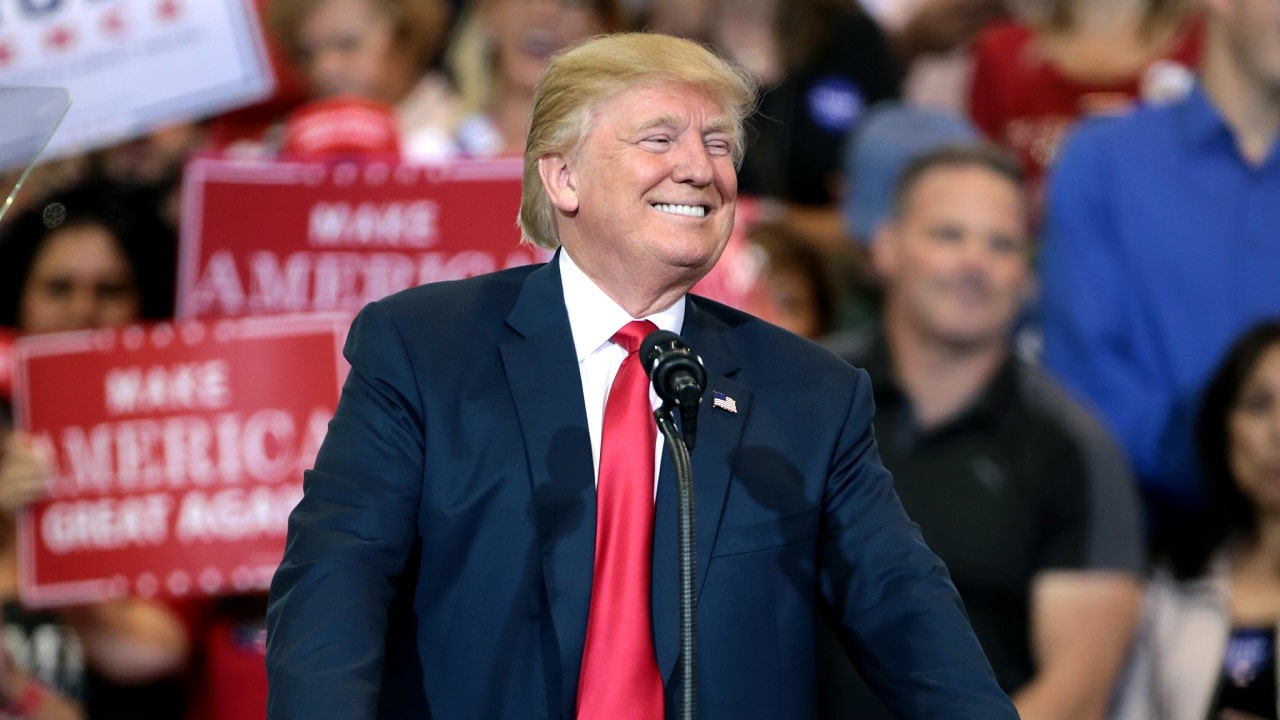Former President Donald Trump has launched his 2024 campaign. 2024 will mark Trump’s third consecutive bid for president – but this run will be distinct.
For one, Trump is especially embroiled. He was impeached twice while President. He is being investigated for mishandling sensitive documents. He is being sued for business fraud. Merrick Garland is considering whether to charge Trump criminally. Trump’s endorsees performed abysmally during the midterm elections. And Trump himself lost the 2020 election.
Donald Trump: Money Issues for 2024?
Meanwhile, challengers – like Florida Governor Ron DeSantis – are rising to challenge the particularly vulnerable Trump’s supremacy over the GOP. Conservative donors are taking notice – with some already vowing not to support Trump.
For example, established Trump ally Stephen A. Schwartzman of Blackstone has said that he will support a candidate from a “new generation” of Republicans. Kenneth C. Griffin, a hedge-fund billionaire and one of the GOP’s biggest donors, has decided to support DeSantis. Other big-time GOP donors, like Richard Uihlein, Jeffrey Yass, and Larry Ellison, have not yet declared their intentions for 2024. But the migration of Schwartzman and Griffin, away from Trump, could be indicative of a larger trend. So, the question becomes: If mainstream donors thwart Trump, can Trump still win the 2024 election? Sure. Recall that Trump won the 2016 election without mainstream financial support.
In 2016, Trump was a long-shot outsider. Early in the campaign he was dismissed as a non-serious option. Serious candidates included Jeb Bush, Ted Cruz, Marco Rubio, and John Kasich. And the serious candidates attracted the traditional, big-money GOP donors. Trump still won the ticket. Then, in the primary election, Trump faced big-money darling, Hillary Clinton. Trump of course beat her, too.
Consider the money Trump raised in 2016. In total, Trump raised $433,393,727. Nearly half a billion dollars, of which only 14 percent ($46 million) came from large contributions. Trump self-financed a higher percentage of his total draw, spending $66 million – good for about 20 percent of his total war chest. Trump also had a Bernie Sanders-style, small contribution thing going, too. Over one-quarter of the funds Trump raised, $86 million, were from individual contributions for less than $200. The point is, Trump has mounted a winning campaign that did not rely primarily on large-scale contributions. Obviously, Trump would benefit from having access to the money that donors like Schwartzman and Griffin can provide, but he doesn’t necessarily need it.
Trump Does Have One Advantage
Trump is still Trump. He’s a political institution at this point. More demagogue, more martyr than public servant or executive. Trump’s people are established and vehement; they know who Trump is and they’re going to vote for him; they don’t need the advertising that big-money donations can buy to make them aware of their candidate or his political agenda. So, Trump will enter the race with a base in place, an enviable starting position that other candidates will spend millions in the hopes of reproducing. Trump has the base without having to spend a dime.
And to be sure, Trump will enjoy media exposure throughout the campaign like no other candidate before (aside from Trump 2016 and Trump 2020). Because while the mainstream media professes to hate Trump, there is no one they’d rather cover – and no one that is better for their ratings. The Trump-level media exposure will have the unintended effect of amplifying Trump’s message, persona, presence – basically the things most candidates have to spend finite funds to do.
So, yes. Donald Trump can win without big money donations. He’s done it before and he’s still Trump. And if the GOP is as crowded as it appears it will be – and that crowdedness leads to 2016-style divisions amongst the establishment for preference for a Trump-alternative, Trump may be able to get by on the cheap.
Harrison Kass is the Senior Editor at 19FortyFive. An attorney, pilot, guitarist, and minor pro hockey player, he joined the US Air Force as a Pilot Trainee but was medically discharged. Harrison holds a BA from Lake Forest College, a JD from the University of Oregon, and an MA from New York University. He lives in Oregon and listens to Dokken.

